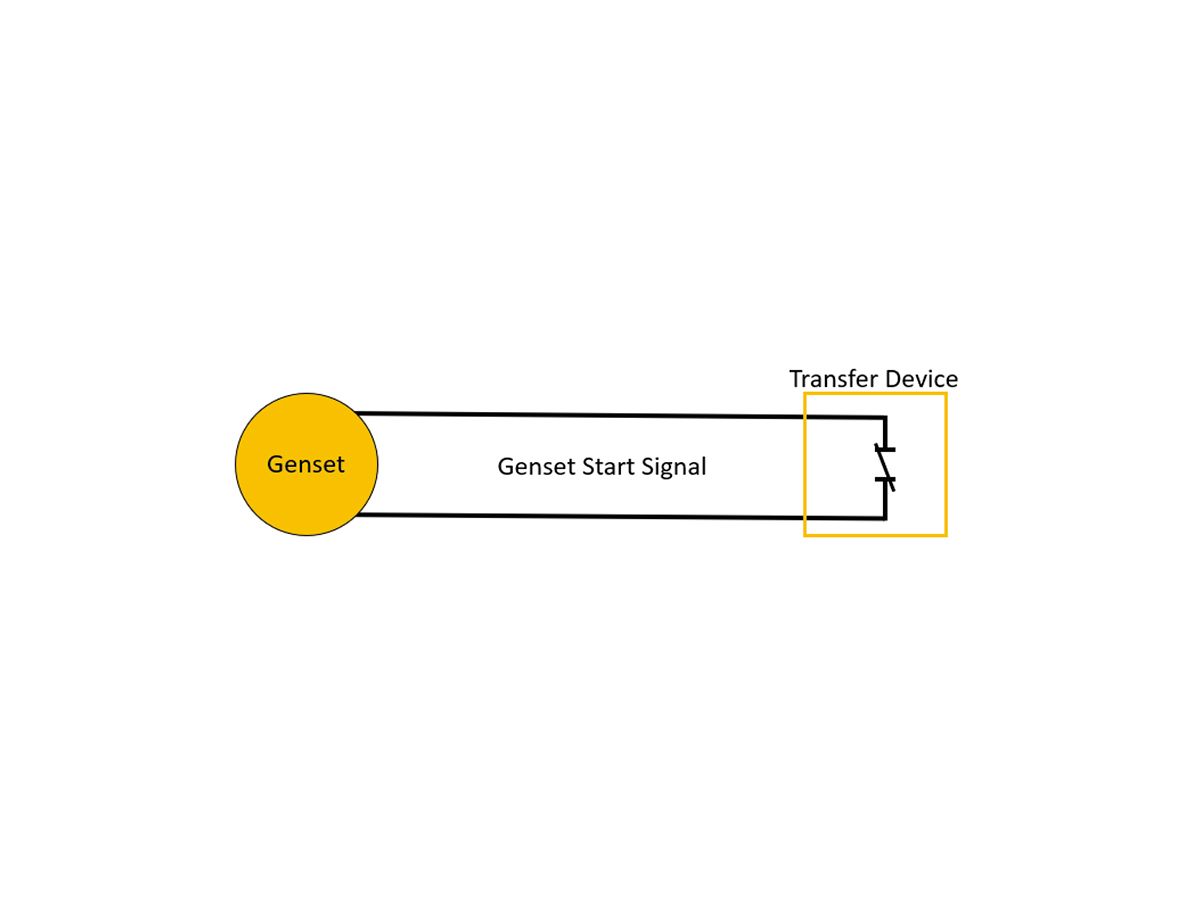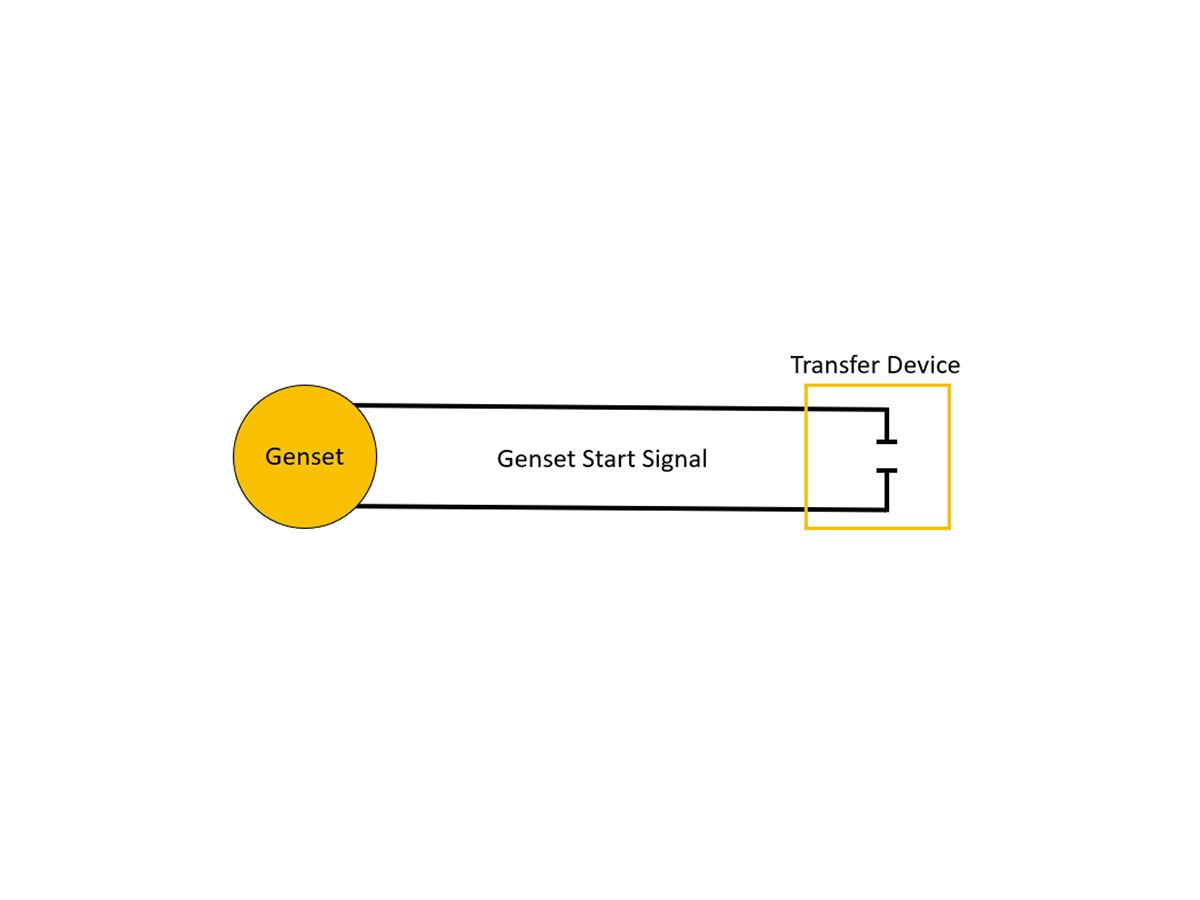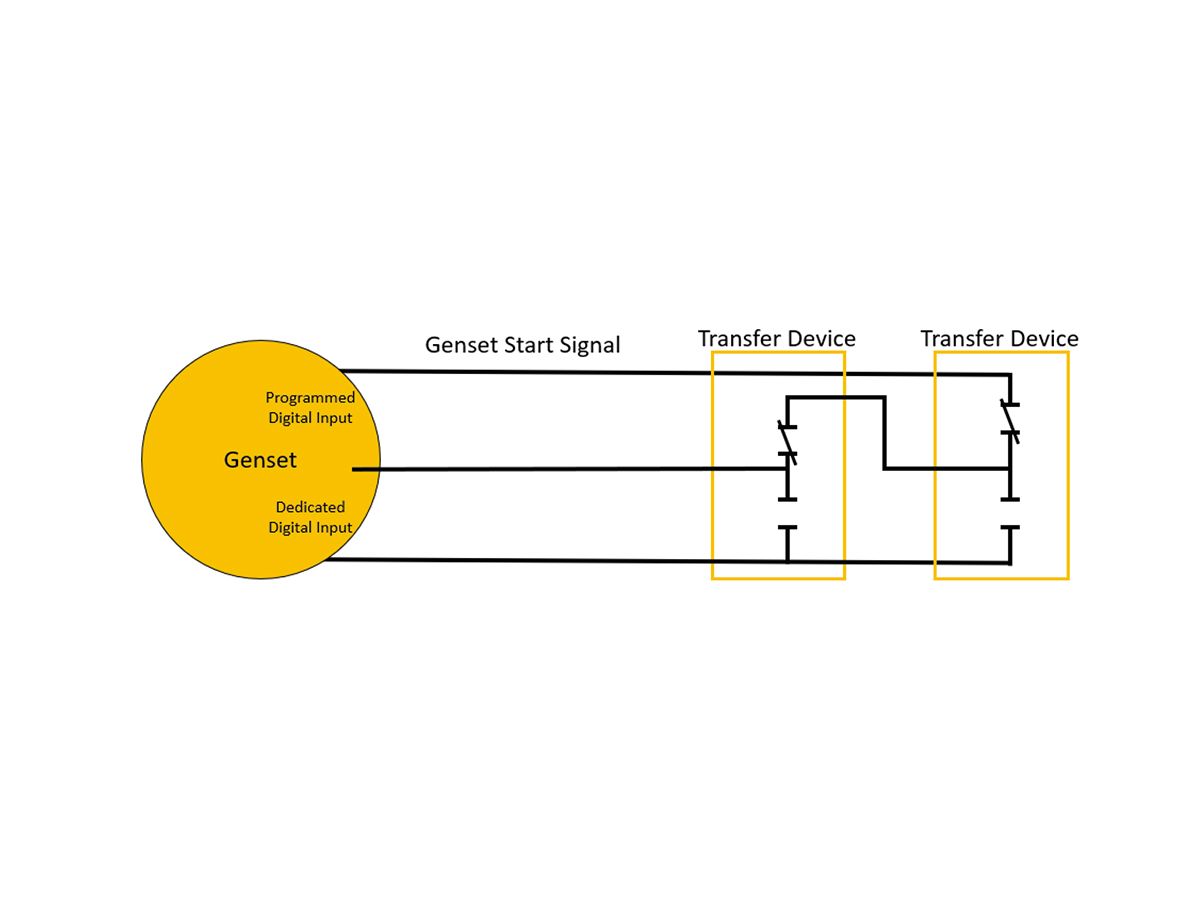Cat® EMCP 4 Start Signal Monitoring
Bryan Snyder
Electric Power, Caterpillar Inc.
INTRODUCTION
All facilities with an emergency backup power system require a Transfer Device to monitor the incoming utility power. When it identifies a loss of power, the Transfer Device will send a start signal to the emergency generator set to start. Start signals can be provided to the generator set in a number of ways; however, it is important to understand if there are potential risks for losing communication between the Transfer Device and the generator set. Some codes have even provided requirements for monitoring the integrity of the start signal, including the National Fire Protection Agency (NFPA) 70: National Electrical Code (NEC) 2017 Edition.
TYPICAL START COMMANDS
The start signal is typically provided through the use of a normally closed contact, which is energized when utility power is present to hold the contact in the open position. When the utility fails and the power is removed from the contact, it will return to the closed state, which the generator set controls will recognize as a request for start. The risk with this process is that if the connection between the Transfer Device and generator set is broken, the generator set will not recognize the closure of the contact and will fail to start.
An alternative to this process would be to use a normally open contact, which would be energized when the utility is present to hold the contact closed. When the utility fails and the power is removed from the contact, it will return to the open state, which the generator set controls will recognize as a request for start. The risk with this process is that if the connection between the Transfer Device and generator set were to have a short, the generator set will not recognize the opening of the contact and will fail to start.
Due to the risk of not being able to start a generator set with loss of communication to the generator set controls, Article 700.10 (D) (3) in the NFPA 70 NEC 2017 Edition was updated to include a provision requiring monitoring of the generator set start signal from the transfer equipment to the generator set. If the signal is to fail, there should be a visual and audible alert for the user to the failure and start the generator set(s).




CATERPILLAR START MONITORING
Caterpillar generator sets with the Cat® EMCP 4 generator set control panels have been developed to enable monitoring of a start signal to meet this requirement through the use of redundant inputs for Remote Start or Group Start commands, along with a Form C contact from the Transfer Device start signal.
This feature requires a programmable digital input to be set as a Remote Initiate or Group Start, which will operate as the redundant input to the dedicated digital input Remote Initiate or Group Start signal. The user will choose the active state (hi/low) for these inputs with the intention of the programmable digital input and the dedicated digital input being opposite states to initiate the desired function. The Form C contact will provide a normally open and a normally closed signal from the Transfer Device with one being wired to the programmable digital input and the other wired to the dedicated digital input. (see photos, Figure 3)
The software logic within the EMCP will look at the logical states of the dedicated digital input and the programmable digital input. When the software detects that the programmable digital input and the dedicated digital input are in the same states (regardless if both are hi or low), the warning event is triggered and the “start signal” activates. When the software detects that the programmable digital input and the dedicated digital input are in opposite states, the software will operate based on the active state settings programmed by the user.
When more than one Transfer Device is required, the Form C contacts will be wired as indicated in Figure 4 to provide monitoring of all communication wires back to the generator set.
By monitoring both sides of the Form C contact from the start signal, the EMCP software can identify a broken wire or loss in communication with the Transfer Device and start the generator set when required, as outlined in the NEC requirements. This enhanced feature provides customers with improved reliability for their emergency power system.





